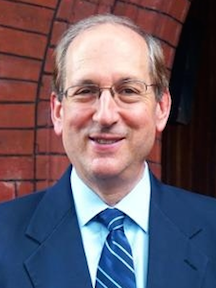We are living in a time saturated with rankings. Higher education is no stranger to this affliction, where it presents a special concern. For what we treasure most about a university experience cannot fully be captured by that which can be concretely measured. As sociologist William Bruce Cameron famously observed, “Not everything that can be counted counts, and not everything that counts can be counted.” How should we think about looking at educational programs and measuring what really counts?
As sociologist William Bruce Cameron famously observed, “Not everything that can be counted counts, and not everything that counts can be counted.” How should we think about looking at educational programs and measuring what really counts?
I was prompted to re-think this question of rankings by a recent inquiry from a great supporter and friend of Phi Beta Kappa. He was concerned that rankings tend to look for measurable outcomes of an education and land on the metric of earning potential. To some extent, this is driven by issues of affordability and the cost of higher education. Still, he wrote, “the analysts fail to consider what makes a successful life. This is a difficult challenge and there are many different views. So, the analysts fall back on income and wealth.” Such a focus seems particularly incomplete in this time of what some have called the “great disruption,” in which many of the assumptions about the American economy and workplace are being questioned, raising fundamental issues of work-life balance. A liberal arts education plays a crucial role at this moment. Phi Beta Kappa has long advocated that a liberal education prepares us not only for productive lives, but also for meaningful and engaged lives, in sum, for truly successful lives.
An important contribution to this conversation by Wendy Fischman and Howard Gardner (ΦBK, Harvard) of the Harvard Graduate School of Education is due out this spring: The Real World of College: What Higher Education Is and What It Can Be.
Fischman and Gardner conducted a broad study of non-vocational higher education. They spent five years at ten different campuses, carrying out more than 2,000 interviews of entering and graduating students, faculty, administrators, trustees, young alumni, parents, and job recruiters. Their findings are provocative but will not be entirely surprising to those of us who have been deeply involved in the advocacy for the liberal arts and sciences. They conclude that for many students, college has become largely transactional. Interestingly, they put the responsibility for this less on students themselves and more on the institutions that they attend. They argue that “the academic goals and means of college are not salient for most students, nor for the other stakeholders we interviewed.”
They recommend that colleges and universities, from the day of admission, play a more direct and affirmative role in introducing and guiding students as to academic goals of their institution. Broadening their course selection is fully consistent with career development. The focus on facilities and extracurricular activities is excessive and perhaps misplaced, distracting from the importance and centrality of the academic mission.
Fischman and Gardner have issued a call to action. We recognize this call in the very origins of Phi Beta Kappa and our continuing mission. Rankings may inevitably focus on such measurable things as earning potential, but we know that monetary compensation is neither necessary nor sufficient to achieve a successful life. A liberal arts education that informs, challenges, and enlightens aims to do just that. Let us continually recommit through our advocacy and our programming to partnering with schools to open up the unknown worlds that Fischman and Gardner describe as the pathway to meaning.
Frederick M. Lawrence
Secretary and CEO




